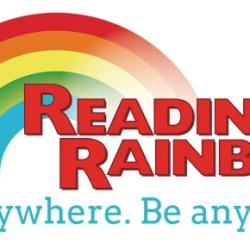Once upon a time there was an internet — a world wide web filled with wonderful people and wonderful things.
This web was as delightful, diverse, and diverting as the millions of people involved in creating and exploring it. There were whole new worlds around every corner. Human-to-human connection was possible and encouraged and flourishing. People shared their opinions, their loves, enthusiasms, complaints, ideas, hopes, dreams, stories, knowledge, expertise, wisdom, folly, jokes, and cat pictures. There were endless quirky sites, fan sites, blogs, blogrolls, webrings, trackbacks, LiveJournals, Tumblrs, and a cornucopia of media sites covering every subject and interest imaginable. It was a great place to learn, to meet others with shared interests, to agree or to achieve disagreement.
And it was just a lot of fun.

But no one was getting fabulously wealthy from all of that. So this wonderful web got monetized. All those people surfing the web became “eyeballs” or “clicks.” And the goal became to prevent them from surfing lest those eyeballs and clicks surf away to somewhere else where someone else might profit from them. A handful of big corporations took over, replacing surfing with scrolling. They provided algorithms to keep your eyeballs stuck on their site, on their own revenue stream. The algorithms were designed to appeal to your interests, but also to retrain and to shape those interests to better align with maximum monetization.
And so the web became “social media” — a perverse term for an eminently less social and less sociable construct of corporate gated communities and guided, guarded tours. This made a few people spectacularly wealthy. It also ruined the internet, turning it into a cesspool of “engagement” trolling and clickbait and vapid SEO-farming.
But that other, earlier, weird and wonderful world wide web is still there. It’s just harder to find. The people making vast sums of money by replacing it with something worse have made it harder to find. But not impossible.
The older tools still work and it’s still possible to surf instead of scrolling — to choose your own adventure instead of just passively accepting whatever the monetizing algorithms force-feed you next.
One of the best such older tools is an RSS reader. This lets you pick your favorite sites, publishers, blogs, fan-fic depots, news topics, etc., and find the latest updates from all of them provided for you — chronologically, not algorithmically — in the simplest, easiest way.
I’ll let David Nield explain how this works in more detail from this February post, “Why Everyone Should Still Use an RSS Reader in 2024“:
It’s 2024, and I’m here to extol the virtues of using an RSS reader. If you missed out on a better era of consuming news and other online content, RSS either stands for RDF (Resource Description Framework) Site Summary or Really Simple Syndication, depending on who you ask. …
… One of the main roles of RSS is to supply directly to you a steady stream of updates from a website. Every new article published on that site is served up in a list that can be interpreted by an RSS reader.
In earlier, simpler internet times, RSS was the way to keep up to date with what was happening on all of your favorite sites. You would open your RSS reader and tap through newly published articles one by one, in chronological order, in the same way you would check your email. It was an easy way to keep tabs on what was new and what was of interest.
Unfortunately, RSS is no longer how most of us consume “content.” (Google famously killed its beloved Google Reader more than a decade ago.) It’s now the norm to check social media or the front pages of many different sites to see what’s new. But I think RSS still has a place in your life: Especially for those who don’t want to miss anything or have algorithms choosing what they read, it remains one of the best ways to navigate the internet.
The rest of Nield’s piece offers a good intro and explanation of how to get started with an RSS reader, which is also thus a good explanation of why it is that you really, really do want to use one.
Consider the alternatives — the things he describes as the current “norm” for how “most of us consume ‘content.'” And consider also just that horrific phrase “consume content.” Understand that those two words form an imperative sentence — a command. And that repeating this command is the function of the big “social media” corporations and their algorithms.
This is why “checking social media” is a lousy way to learn about the world or to follow your interests. The big “social media” plantations are neither social nor media. They’re set up to show you what they’re interested in, and what’s profitable to them. They shape and determine your feed and the “content” of the feed-bag they strap to your face.
Choose for yourself instead. Use an RSS reader and you get to decide what feeds you do or do not want to subscribe to or follow.
And that idea of checking “the front pages of many different sites to see what’s new”? That’s not bad, just hard to keep up with. Managing a host of bookmarks can be like homework. An RSS reader will do that homework for you.
It really is a fantastic tool. And using this tool is one of the best ways to ensure that corporate social media algorithms are not using you as their tool.
Take back the web. Choose your own adventure. Get yourself an RSS reader.
Over the weeks ahead I’m going to be using this “Take Back the Web” series to share with you the list of sites, blogs, publications and news alerts I track through my RSS reader. That’s partly to encourage you to develop your own such list and to use an RSS reader to follow them. But it’s partly also because my reader is filled with really cool sites and really cool people and I like talking about them.

















